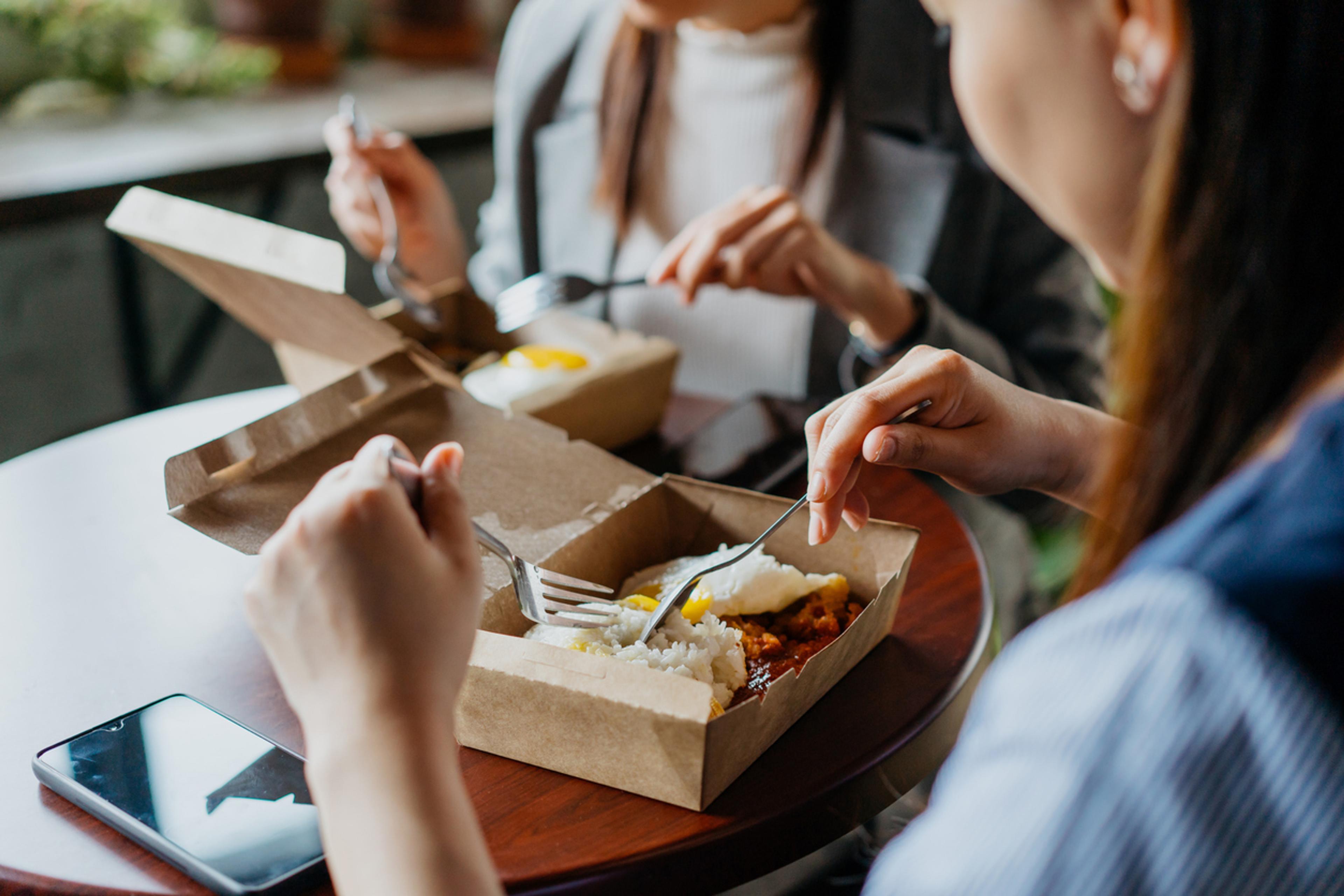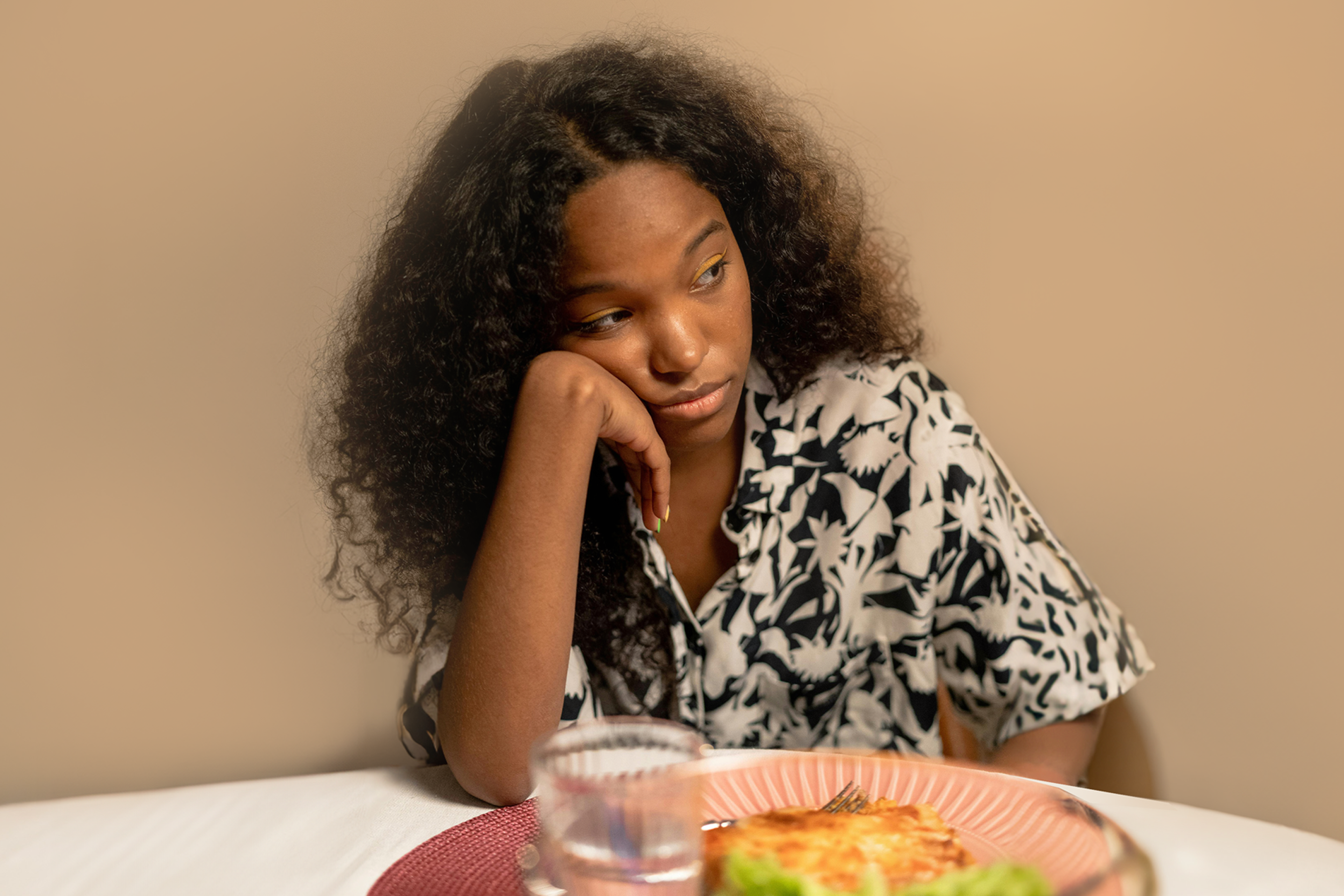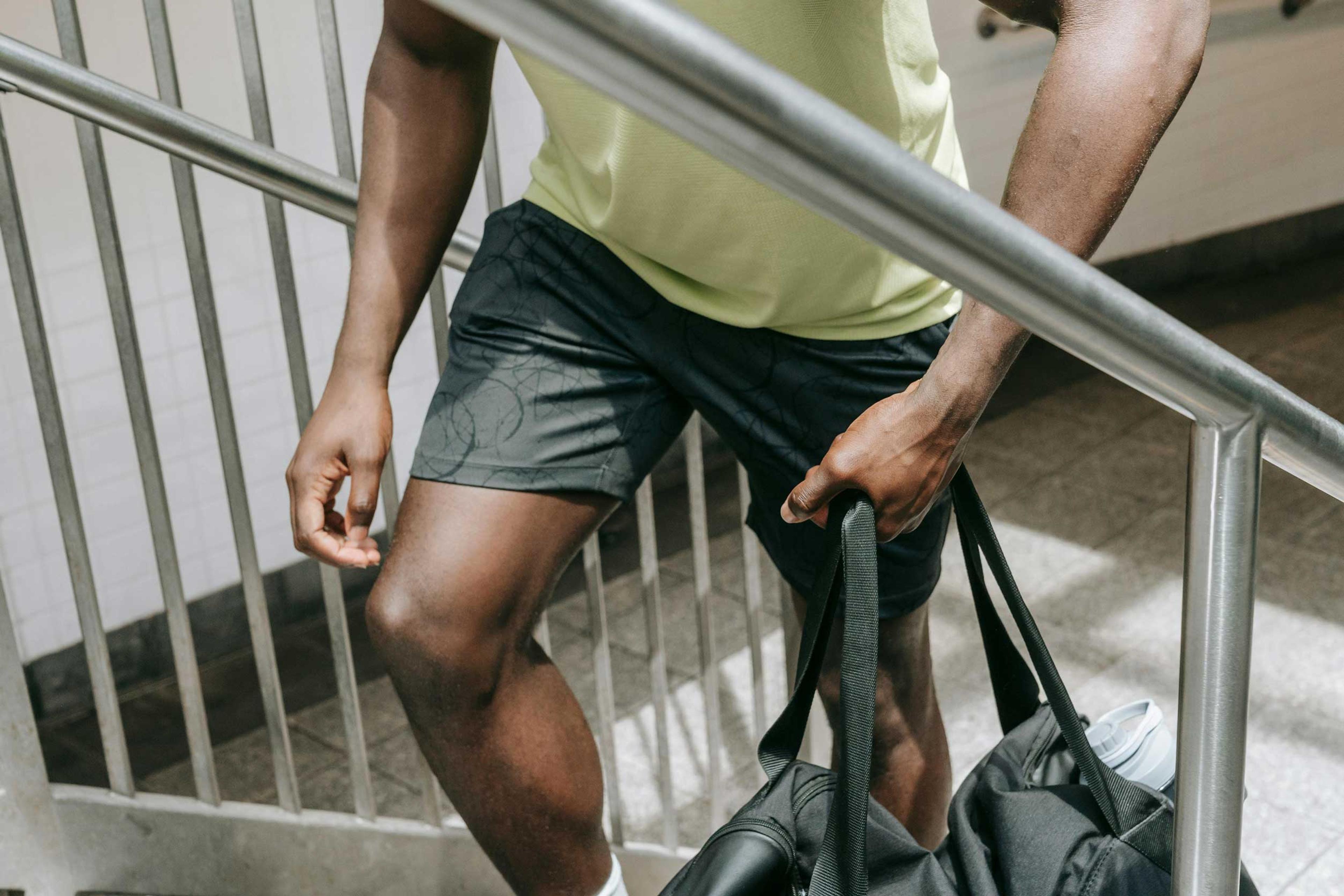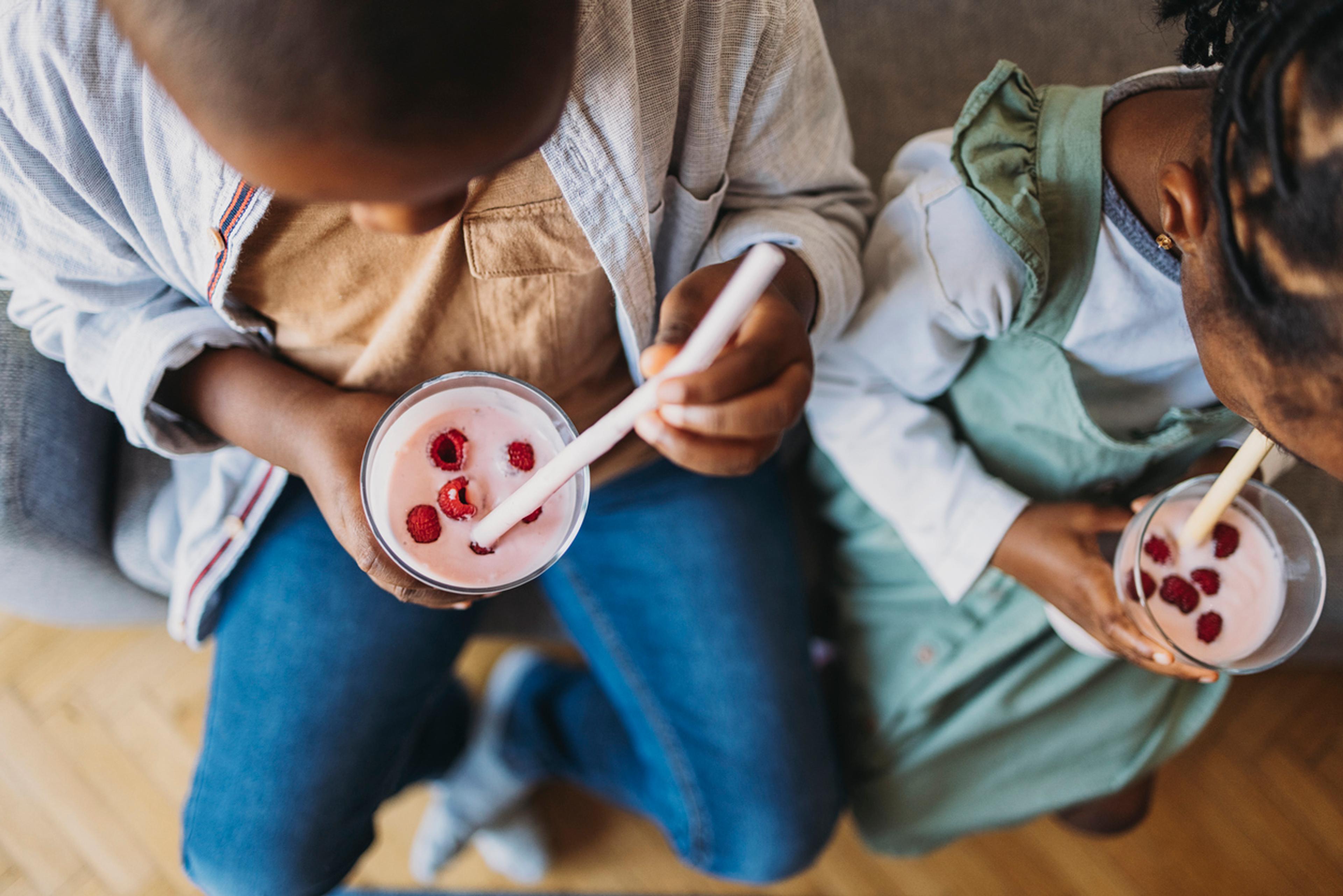


When Equip Lead Peer Mentor Makailah (Mak) Dowell reflects back on her teenage years living with bulimia and binge eating disorder (BED), she vividly remembers the isolation and loneliness.
“I didn’t tell anyone and I was barely diagnosed due to the biases at play in my own healthcare,” she says. “I learned how to suffer in silence really, really well.” Dowell’s one reliable source of comfort through the struggle was her best friend, Olivia. “She would always call me to leave the house, take me to the movies with her family, and include me in any type of plans she had,” she says. “As an only child being raised by my single-parent grandparent, her family took me and my grandma in.”
Anyone who has ever witnessed a friend navigate the treacherous path of an eating disorder has likely wondered how to be a supportive and nonjudgmental ally, like Olivia was for Mak. And while all eating disorders tend to come with shame and secrecy, this can be especially true for bulimia—making it harder for the person struggling to ask for and receive support, and for loved ones to offer it. But that support is so important, and can even be life-saving. Read on for expert-approved guidance on how to help a friend with bulimia.
Why it’s so hard to know if someone is a struggling with bulimia
It can be particularly tough to know when and how to talk to a friend about their concerning behaviors if they haven’t confided in you about their disease. In some cases, they may not even be aware that they have a problem. The first step in determining whether or not someone is dealing with bulimia is knowing what, exactly, it is.
As Equip Therapy Lead, Maddie Friedman, LCSW, defines it, bulimia is a disorder characterized by episodes of binge eating followed by compensatory behaviors to “get rid of” or “make up for” the food, known as purging. These behaviors and health risks can include everything from self-induced vomiting and laxative/diuretic use to over-exercising, fasting, and taking diet pills. While those unfamiliar with the disorder may assume the signs of bulimia are easy to spot, Friedman underscores just how hidden the issue can be.
“Bulimia is often shrouded in shame and guilt, and thrives in secrecy,” she says. “Needless to say, these eating disorder behaviors can feel all-consuming and can result in people really dropping out of their lives: drifting away from close friends and family, disengaging from responsibilities and hobbies, and finding less joy in previously enjoyed activities.”
Dowell knows from her own experience and from working with others that detachment from the outside world can be a red flag. “One of the biggest signs of bulimia is isolation,” she says. “If your friend is gone for long periods of time or canceling plans more consistently than before, then you should check in. Most people in recovery mention that isolation allowed the eating disorder to thrive.”
Why friends are so important in the recovery process
Research has shown that having a strong support network can make a world of difference in eating disorder recovery, so it’s important for friends and loved ones to know how impactful their words and actions can be. In fact, many people who have overcome eating disorders cite these supportive relationships as one of the key factors in their recovery. Since social isolation is such a common aspect of eating disorders like bulimia, actively supporting a friend who is struggling can help disrupt and dismantle problematic thoughts and behaviors that tend to be amplified in secrecy.
“We know that bringing your village to treatment can enhance treatment outcomes, because it challenges the secrecy that often maintains eating disorder behaviors,” Friedman says. “When supports can rally around a loved one to promote treatment and recovery, they may be more likely to reconnect with their values and life worth living outside of the eating disorder, which can be motivating despite the hardship.”
How to help a friend with bulimia who isn’t in treatment
If you’re worried that a friend is dealing with bulimia but they haven’t yet sought help, there are things you can do to help them get there. In some cases, a friend may not be aware of their concerning behaviors, or they may refuse treatment because they don't believe they’re “sick enough” to seek help.
Here are some ways to gently guide them toward recovery:
- Call for backup if you need it. If you’re certain a friend is struggling with bulimia but they haven’t expressed interest in treatment, Friedman says this may be an opportunity to bring in reinforcements. “Depending on the circumstances, it may be helpful to offer to contact their loved ones or help connect a friend to bulimia treatment,” she says.
- Help with logistics. Another way to show solidarity and support a friend’s path toward recovery is to encourage or even supply food options, since simply deciding what to eat and making it can be a barrier. “You can offer to provide meal or snack support and help normalize regular eating, aka three meals and two snacks a day,” Friedman says. “Eating regularly is often one of the most helpful strategies to discourage binge eating because it disrupts the binge/restrict cycle. If folx are feeling nourished and energized, it may decrease the likelihood of engaging in binge behaviors that promote compensatory behaviors.”
- Just be there. Dowell says that simply being present and making yourself available can also go a long way in making a friend feel unconditionally supported. “Invite your friends out, come to them, and be there to help with distress tolerance,” she says. “My best friend would always take me out of the house and be there to enjoy food with me and watch a movie afterward. This didn’t allow the eating disorder to bully me into behaviors, and helped me to distract and enjoy a good show with my friend.” Friedman seconds this recommendation, noting that if a friend isn’t willing to seek care, “you can offer to partner with them during high vulnerability moments to resist eating disorder urges and behaviors like binging or purging.”
- Remember to care for yourself. While it’s commendable to want to make sacrifices to help a friend in need, Friedman also points out the importance of self-care and boundary-setting through the process. “Please also know that peer support and professional support for eating disorders exist!” she says. “You do not have to take it all on, even if your loved one isn’t willing to seek care. Boundaries are important and caregiver burnout is real.”
How to help a friend with bulimia who is already in treatment
The recovery process can be incredibly challenging, even with a team of experts guiding the way. Plus, having the support of loved ones outside of treatment can improve a person’s odds of achieving lasting recovery.
Here are a few ways to continue supporting a friend as they navigate treatment for bulimia:
- Validate their hard work. “Offering validation and support to loved ones in treatment can be critical,” Friedman says. “Treatment is really hard, and tends to be very upsetting and draining initially. Normalizing that treatment is worth it, even when it feels hard, can be super helpful. People often feel very torn between their eating disorder and their sense of self when they begin treatment, and being a consistent source of support through the storm can promote treatment compliance.”
- Let them guide the conversation. Though it comes from a good place, it’s never helpful to force a conversation about how recovery is going. “Someone in treatment may want to compartmentalize their life in recovery or get done with treatment and move on,” Dowell says. “Depending on your friend, you may be talking about their recovery or never talk about it explicitly. Both ways are fine! As long as you both agree that the relationship is supportive.”
What may not be helpful for a friend struggling with bulimia?
While there are plenty of constructive ways to approach and support a friend, it can be beneficial to understand why some tactics and strategies—even when well-intentioned—may not be helpful.
If you’re worried about a friend with bulimia, here’s what not to do:
- Express judgment. “If you suspect a friend is struggling with bulimia, it is always best to approach with curiosity,” Friedman says. “Refrain from confrontation or accusation, and give them space to come to you for support. Since eating disorders can be such powerful drivers of behavior, they can really disrupt relationships. It’s important to remember that your loved one is still there and is often fighting beneath the influence of the eating disorder. When we approach folx who are in the throes of an eating disorder forcefully, we’re more likely to trigger shame and guilt, and promote further isolation.” (Check out this guide on how to avoid triggers.)
- Offer unsolicited feedback. “I would start by respecting your friend’s agency and checking in with them first,” Dowell says. “If you suspect something, you can ask, ‘are you facing any challenges you want to let me know about?’ or ‘I noticed you haven’t been hanging out with me as much as before, has anything changed?’ Even asking, ‘how is your mental health?’ can open up a bigger conversation.”
- Shoulder all the responsibility yourself. If a friend doesn’t seem receptive to the conversation or chooses to avoid the subject, Dowell says this may be time to reach out to one of their loved ones for extra support. “It’s always important to respect your friend’s agency and start with curiosity,” she says. “Then once you understand that your friend needs support, reach out.”
If you’re wondering how to help a friend with bulimia, you’re already on the right track. Supportive relationships can make a significant impact on a friend’s recovery, but it’s important to help out thoughtfully. By continuing to care for yourself and understanding how to approach a delicate issue like bulimia, you’ll be empowered to show up as a prepared, empathetic, and compassionate friend.
“Olivia was a part of my recovery and still a part of my life,” Dowell says. “I’m grateful and privileged to say that I am the godmother to her first child born this year. These 15 years of friendship continue to be a place of support, love, and leaning on each other.”
- “Anorexia and Friendship: Can Friends Galvanize Recovery? | Psychology Today.” n.d. Www.psychologytoday.com. Accessed April 12, 2024. https://www.psychologytoday.com/us/blog/hunger-artist/201910/anorexia-and-friendship-can-friends-galvanize-recovery.
- Wetzler, Sara, et al. 2020. “A Framework to Conceptualize Personal Recovery from Eating Disorders: A Systematic Review and Qualitative Meta‐Synthesis of Perspectives from Individuals with Lived Experience.” International Journal of Eating Disorders 53 (8): 1188–1203. https://doi.org/10.1002/eat.23260.







